How many early human species existed on Earth?0
- Ancient Archeology, From Around the Web
- February 1, 2021
It depends on your definition of human.
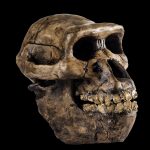
It depends on your definition of human.
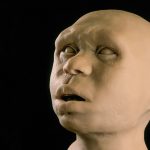
When it comes to deciphering our ancient family tree, DNA from fossils is the new gold standard. But after about half a million years, even the best-preserved DNA degrades into illegibility, leaving the story of our early evolution shrouded in mystery. A new study of proteins taken from the tooth of an enigmatic human ancestor reveals their rough place in the family tree—and shows how ancient proteins can push beyond the limits of DNA.
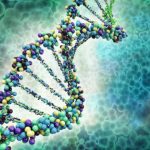
Genetic information from an 800,000-year-old human fossil has been retrieved for the first time. The results from the University of Copenhagen shed light on one of the branching points in the human family tree, reaching much further back in time than previously possible.
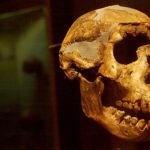
Dating of bones from Indonesia confirm Homo erectus roamed planet for 1.8m years

Where was the evolutionary birthplace of modern humans? The East African Great Rift Valley has long been the favored contender – until today.

Scientists using sophisticated techniques to determine the age of bone fragments, teeth and artifacts unearthed in a Siberian cave have provided new insight into a mysterious extinct human species that may have been more advanced than previously known.

AI has predicted a new hybrid species stemming from Denisovans and Neanderthals that has not yet been identified.
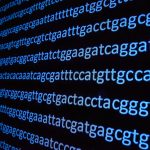
By combining deep learning algorithms and statistical methods, investigators from the Institute of Evolutionary Biology (IBE), the Centro Nacional de Análisis Genómico (CNAG-CRG) of the Centre for Genomic Regulation (CRG) and the Institute of Genomics at the University of Tartu have identified, in the genome of Asian individuals, the footprint of a new hominid who cross bred with its ancestors tens of thousands of years ago.
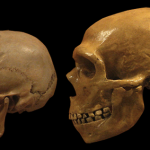
A pair of researchers at Temple University has found evidence that suggests Neanderthals mated and produced offspring with anatomically modern humans multiple times—not just once, as has been suggested by prior research.
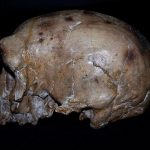
Most scientists believe all modern humans are descended from African ancestors. But a new analysis of an ancient Chinese skull found too many similarities to the earliest human fossils found in Africa to be a coincidence; maybe we didn’t all originate in Africa.